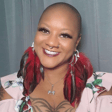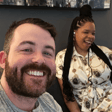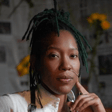
Finding Finding Inner Acceptance in a Productivity-Obsessed World with Christina Carlson
SUMMARY
Welcome to another episode of Dirty Money with Bevin and Mike. In today's episode, we discuss finding inner acceptance in a productivity-obsessed world, accompanied by our guest, Christina Carlson.
Christina brings a unique perspective, having navigated through the complexities of identity, spirituality, and societal constructs. From questioning capitalistic expectations to advocating for rest as a form of resistance, Christina's narrative invites us to challenge conventional norms and embrace authenticity in a world fixated on productivity.
Christina is an ex-religious individual who grew up homeschooled in the heart of the Midwest. She has been working as a coach while pursuing her master's degree, offering incredible insights into self-awareness and personal growth. Throughout this episode, we'll journey through Christina's origin story, exploring the influences of her upbringing and the pivotal moments that shaped her worldview.
TOPICS
[3:30] Christina’s Origin Story
[10:05] Artistic Conversations and Growth
[27:30] The evolution of Christina’s coaching
[39:40] Questioning Society's Constructs
[45:55] Getting back to our roots
[1:03:55] Rest as resistance
RESOURCES & LINKS
Connect with Christina
Instagram: @careercoachingwithchristina
TikTok: CareerCoachChristina
Website: https://www.christinamcarlson.com/
Other Resources Mentioned:
- The Origins of You by Vienna Pharaon
- Discovering the Inner Mother by Bethany Webster
- Polysecure by Jessica Fern
- United States of Tara
- Life In a Day
CONTACT INFO
Bevin Morgan:
Instagram: @bevinmorgan & @temple_eanna
Website: www.templeeanna.com & BevinMorgan.com
Mike Poulin:
Instagram: @mjpou56
Dirty Money Podcast:
Instagram: @dirtymoney_podcast



















